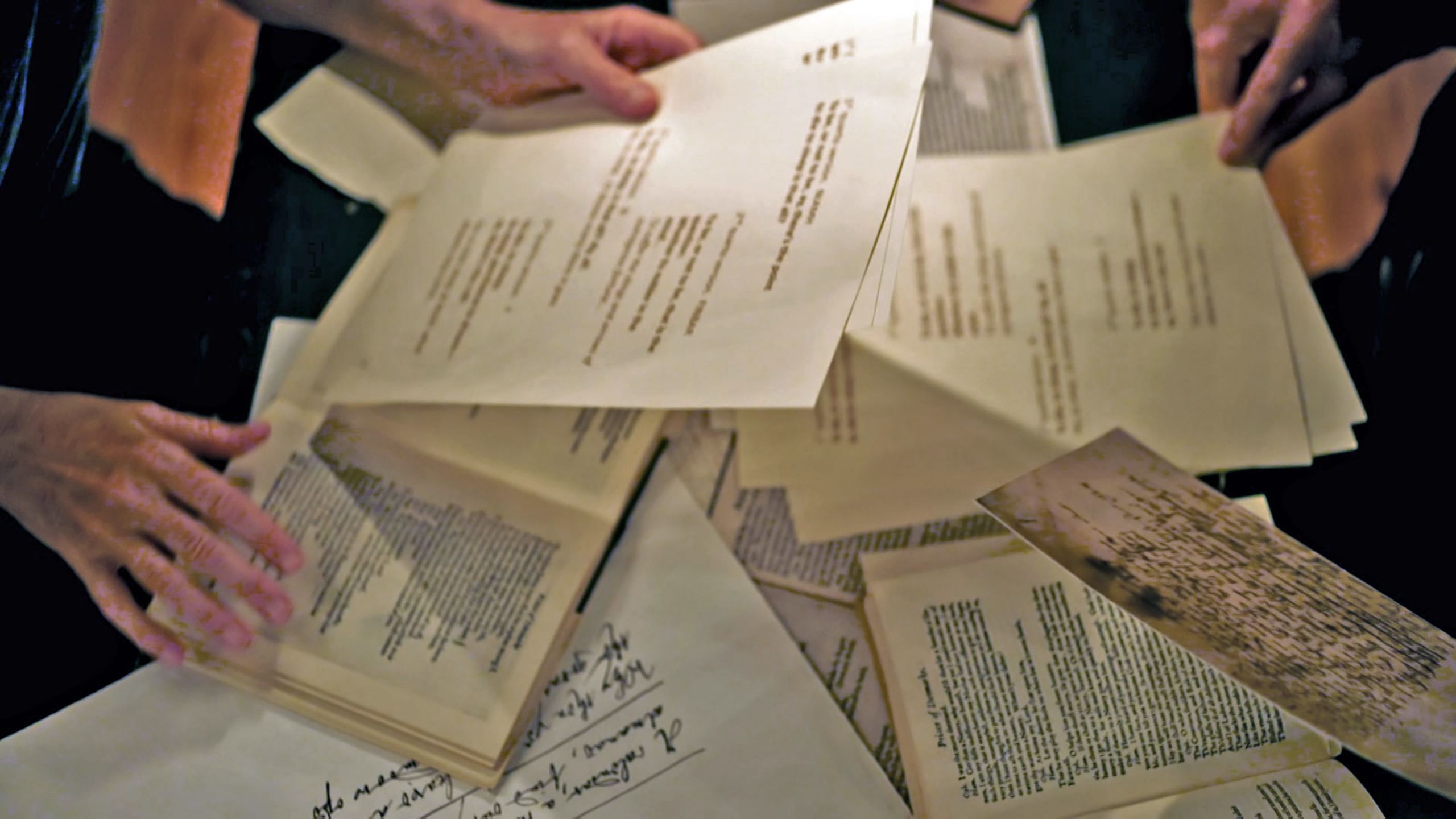The History of the First Folio
Did you know that without the help of two of Shakespeare’s friends, half of his works would now be lost? Making Shakespeare: The First Folio details the incredible story of how two of Shakespeare’s fellow actors, John Heminges and Henry Condell, worked to preserve their friend’s legacy through their creation of the First Folio. Below, explore the timeline of how the folios were created, as well as some famous theater lovers who bought a copy.
To learn more about the folios, and Heminges and Condell, be sure to watch Making Shakespeare: The First Folio.
Shakespeare’s Birth
Although there is no actual record of Shakespeare’s precise birthday, most people celebrate the Bard’s birthday on April 23. Why April 23rd? During this period, it was customary to be baptized three days after your birth, and Shakespeare’s baptism was recorded at Holy Trinity Church, Stratford-upon-Avon on April 26,1564.
The Lost Years
The period between the birth of Shakespeare’s twins, Hamnet and Judith, in 1585 and the start of his theater career in London in 1592. There are several stories telling how Shakespeare came to be an established playwright in London. Some say he fled to the city to avoid punishment after killing a local landowner’s deer in Stratford-upon-Avon. Others suggest that he was a lawyer’s clerk, or a soldier. Others assert that he joined a travelling group of actors who visited Stratford-upon-Avon in the late 1580’s. While we will never know for certain how Shakespeare came to London, we do know that be 1592 he was an established playwright within London, having already published Henry VI Part 1, Henry VI Part 2, Henry VI Part 3, The Two Gentlemen of Verona, and Titus Andronicus.
Shakespeare and the Theater
Shakespeare served as the regular dramatist for Lord Chamberlain’s Men, a theater company under the patronage of Lord Chamberlain, and then later King’s Men when the theater troupe came under the patronage of King James I, for 20 years. During that time, he produced on average two plays a year. During his lifetime, only half of his plays were published in print. The rest existed only in the scripts given to actors, or in Shakespeare’s original rough drafts.
Shakespeare’s Death
Shakespeare dies at the age of 52.
Hearing the news of his death, two of Shakespeare’s friends and fellow actors in his theater troupe, John Heminges and Henry Condell, took it upon themselves to create a complete collection of Shakespeare’s works, later to become the First Folio.
Seven years after his death, the First Folio, is finally published. Approximately 750 copies of the First Folio were created, costing on average about a pound per copy – approximately a year’s wages for a laborer.
A second version of the folio, adapted from the first, was published by Thomas Coates. One such owner of this updated copy was King Charles I, who may have been reading it at the time of his imprisonment in Carisbrooke and Windsor Castle prior to his execution in 1649.
The Folger Shakespeare Library, the largest collection of Shakespeare materials in the world, is founded by Henry and Emily Folger in Washington D.C.
A First Folio, originally belonging to Bishop John Cousin, is stolen from the University of Durham. The only copy to be held in the same ownership since it’s purchase, its disappearance shocked the scholarly world and the city of Durham.
Raymond Scott arrives at the Folger Library, saying he has a copy of Shakespeare’s works that belonged to a Cuban family he was working for. The Folger Library works to authenticate the copy and realizes that it bears the same markings as that of Durham’s stolen First Folio.
Raymond Scott is arrested in Washington, England and sentenced to eight years in prison.







